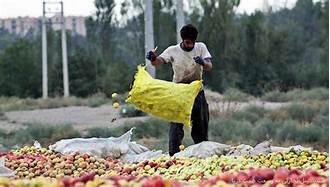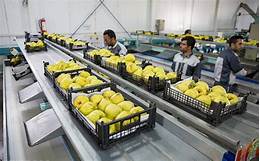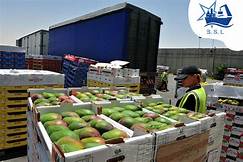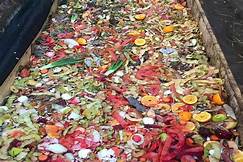Food and agricultural waste In Damavand ( Buy )
You can introduce your business services or products in this section.
For this purpose, be in touch with us.
Today world is paying more attention to the issue of food and agricultural waste management is calling for more decisive action to be address on it. The growing awareness and increase in demand for proper action are rooted in strong moral connotations associated with food and agricultural waste management. These are based on the fact that food and agricultural waste implies unnecessary pressure on environment and natural resources. The land and water resources have been wasted, pollution created and greenhouse gases emitted to no purpose. It is also wonder how we ignore and allow food and agricultural waste thrown away when many hundred millions people in the world continue to hungry every day. This global attention on the issue of food and agricultural waste management is the main Agenda for Sustainable Development of st Century. Many countries are already taking action to reduce food and agricultural waste, but the challenges ahead remain significant and we need to step up efforts. When we strive to make progress towards reducing food and agricultural waste, it can highly effective in our efforts of best management of food cost, environmental problems and greenhouse gases. There is need to be considered main three dimensions. At first we need to know how much food and agricultural crops are wasted as accurately as possible, where and why Secondly we need to more clear about underlying reasons or objectives for reducing food and agricultural waste, must be related to food security and environment. Thirdly, we need to understand how food and agricultural waste, and its measures to reduce it, affect the objectives being pursued. These are the main points in order to help design more informed and better management policies for food and agricultural waste management. An estimation by FAO in suggested that around a third of the world’s food was lost and wasted every year. According to UN environment, globally around fourteen percent of the world’s food is lost from production before reaching to the retail level. The main objectives are reducing food and agricultural waste by better management and know how essentially environmental situation changes are. In the case of greenhouse gas these accumulate throughout the supply chain. Therefore, reducing food and agricultural waste by consumers will have the biggest impact which represents a larger amount of green gas house emissions.
Food and agricultural waste management is undertaken to recycling the wastes so as to reduce the ill effects of wastes on environment, health and aesthetics. The waste may be either in solid, liquid or gaseous form. The process of food and agricultural waste management varies for rural and urban areas, for municipal and industrial waste, for developed and developing nations. The management of municipal wastes is responsibility of local government while as the management of agricultural waste is the responsibility of farmers. The developed nations use various novel technologies to reduce the negative impacts of waste or use and effective management to exploit it.
State and local authority must be contacted for necessary permits obtained before land application. Many permits require ongoing monitoring of groundwater and possibly soil and plant matter. Hydraulic loading is often ignored. If the site has a high water table or low permeability, the amount of water that can be applied generally is reduced. In some food processing waste, the level of salt is too high for land application. Most food processing waste land application sites should be designed by a professional who has experience in these type systems.
Presently, reducing food and agricultural waste has become the main agenda of many governments, NGOs, and other societies in many countries. Food and agricultural waste is nothing but remnants of our used stuff as vegetables, food stuff, animal waste etc. which people are practicing and reusing them daily by repurposing for their utility since ancient times. Due to modern urbanization and industrialization, the concept of repurposing has changed by new waste management and recycling technology invention, together with use and throw concept.
The process of collection, transport, disposal, recycling and monitoring of food and agricultural wastes is called food and agricultural waste management. Food and agricultural waste management can be costly so it is important to understand the various effective, sustainable and safe means of its management. The three points ‘R s “Reduce, Reuse, and Recycle have become basic tenet in food and agricultural waste management due increase in generation of wastes, increasing in processing costs and decrease in available landfill space. There should be flexibility in food and agricultural waste management systems in light of changing environmental, social and economic conditions. To optimize, evaluate, adapt and define food and agricultural waste management systems, the information and feedback can be obtained from system analysis.




